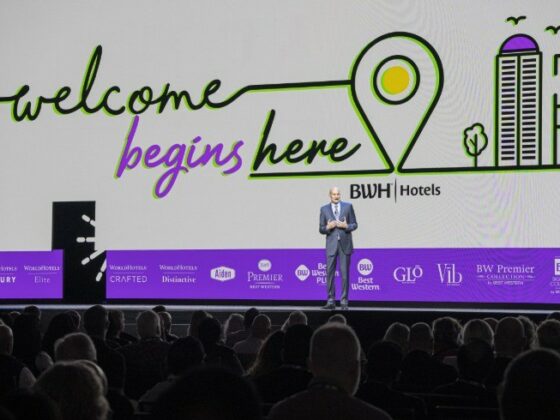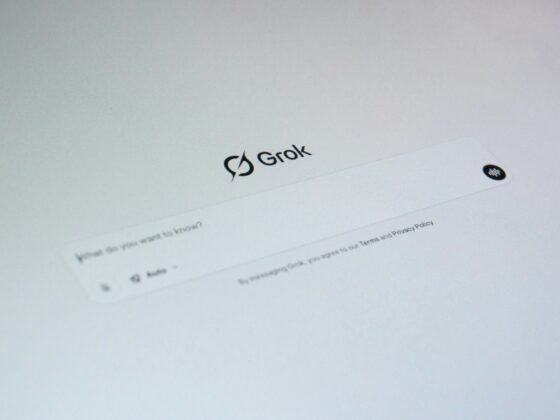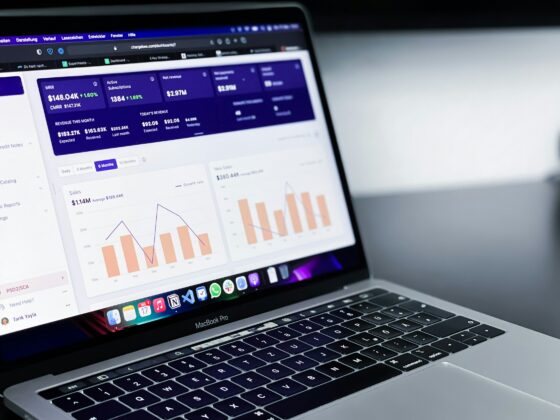
Unfortunately for them, fortune favors the bold, and it’s those who evolve now who will ensure that their hotels are able to stay ahead of the game for years to come. To ensure digital solutions directly impact growth, hotel CIOs need to act like business leaders and be flexible in their approach to discovering how to optimize operations and reduce spend for their business. When 85% of IT leaders view CIOs as ‘the role of the changemaker’, it’s on them to lead the way in saying goodbye to legacy thinking and driving progress.
So, what should they be prioritizing?
Spearhead Digital Change
Without a strong leader in charge, the digitization process can drag on indefinitely and become fragmented across large systems—particularly unhelpful for hotels and resorts, which tend to span a wide range of locations with occasionally disparate ways of operating. It’s up to IT leaders to explore how innovative tech can help their hotels, and then implement these changes at scale.
A great place to start is a centralized data system. While perhaps not the most glamorous shift on paper, centralized data systems allow your business to keep pace with change in the wider market, by giving your entire suite of hotels access to data that informs intelligent decision making. Not only does this ensure your strategy is data-driven and evidence based, but enables each location to tailor their moves based on the behavior of their unique set of guests for a more agile, bespoke approach. Plus, as Gen Z guests become an increasing area of focus for hoteliers, unlocking the data around their stay behavior early will be a vital tool in staying ahead of the competition. Understanding your current and future guests is now imperative to the overall growth strategy of a single hotel property or enterprise.
Be a Cloud Frontier
The broad implementation of cloud-based computing is one of the fastest ways to help your organization scale and ensure that your infrastructure remains easy to manage as it grows. But many hotels are still using the cloud as just a remote database service, rather than unlocking the benefits that modern cloud technology offers.
Hotels and resorts that embrace cloud-based management systems are able to increase both productivity and profitability by giving teams the tools they need to understand how each venue is performing. Hospitality industry-specific KPIs become easy to meet when everyone has access to a platform that keeps staff informed, focused, and compliant with privacy regulations. And, unlike with localized legacy alternatives, these cloud-based changes can be applied throughout your entire suite of hotels for consistent, strong processes across the whole chain.
Arm and Protect
Cybersecurity is a rising concern for businesses the world over, and hoteliers need to be mindful of securing the data they hold, with 31% of hospitality providers reporting data breaches. The consequences of cybercrime can be huge, both financially and reputationally, so being prepared is always the best policy.
IT leaders need to take charge in reiterating the importance of cybersecurity for their hotels, advising staff on how to avoid common phishing scams and other security pitfalls to keep guest information secure. Consistent rules for best practice must be established across every hotel location, and rigorously enforced via regular training in how to stay secure while interfacing with hotel tech. In doing so, you not only protect the business from becoming the victim of malicious digital activity, but also foster trust within your guests and build customer loyalty in the process.
Time to Take Charge with Hotel Software
Today’s IT leads are rising to the plate to lead the technological evolution of hotels and resorts. There’s a lot to do, from developing communications skills across thousands of staff, to executing change management strategies and implementing exciting new solutions—but doing so doesn’t have to be difficult. The right attitude, the will to lead, and a firm focus on the future should guide IT departments confidently forward. Ultimately, it comes down to one question: are you ready to say goodbye to the legacy tech that may be holding your hotel back?









